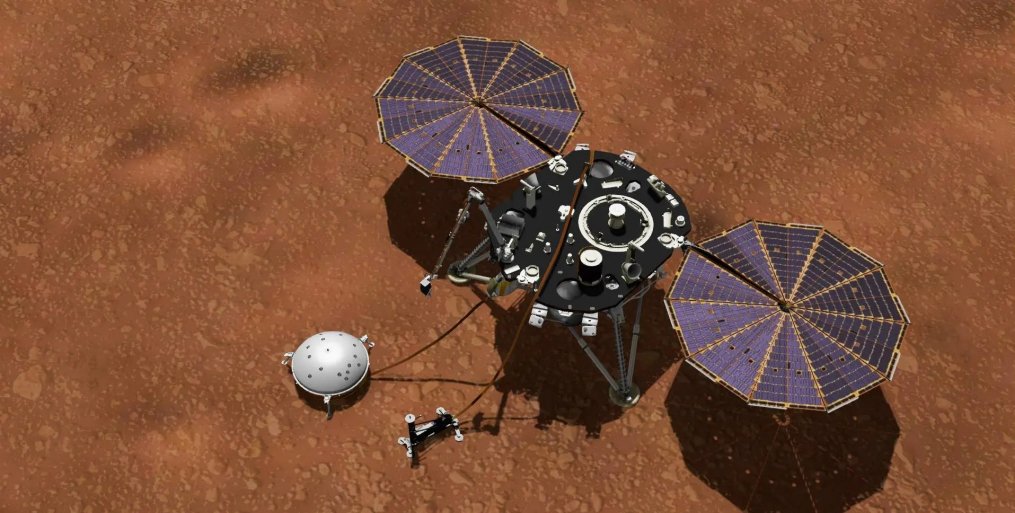"Planet-observing scientists now know how thick Mars' crust is," he says ScienceNews, "thanks to the strongest Marsquake ever observed."
On average, the crust is between 42 and 56 kilometers thick, report the researchers in a document which exists in ESS Open Archive. This is about 70 percent thicker than the average thickness of Earth's continental crust.
The measurement was based on data from NASA's lander InSight, a stationary seismometer that has been recording seismic waves rippling through the Martian interior for four Earth years.

Last May, the entire planet was rocked by a magnitude 4,7 earthquake that lasted more than six hours. "We were really lucky to have this earthquake," says seismologist Doyeon Kim of ETH Zurich.
InSight recorded seismic waves from the quake that circled Mars up to three times. This allowed Kim and his colleagues to infer crustal thickness across the planet.
Not only is the crust thicker than that of Earth and the Moon, but it is also inconsistent across the Red Planet, as found by team. And this may explain a known north-south elevation difference on Mars.





